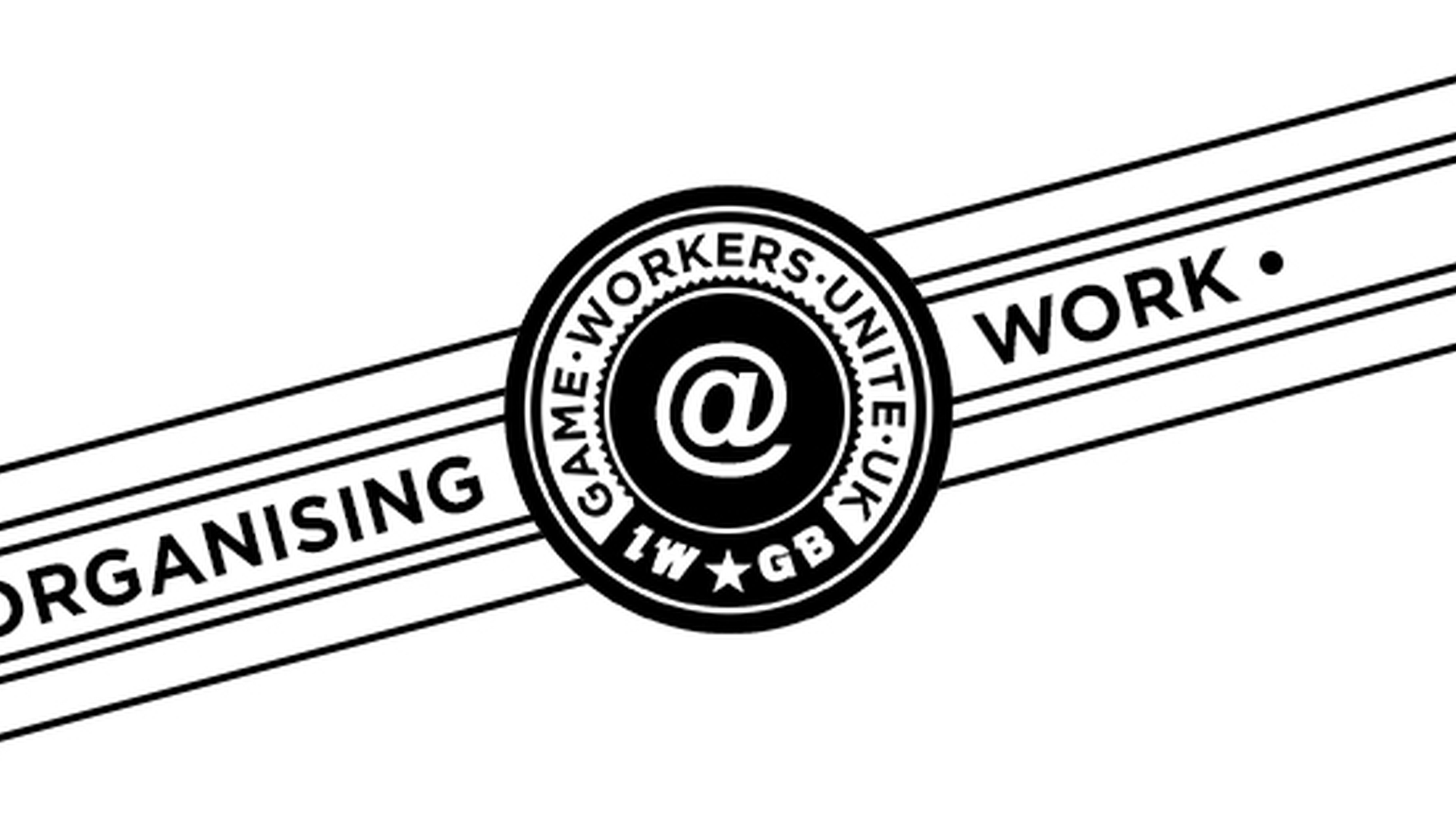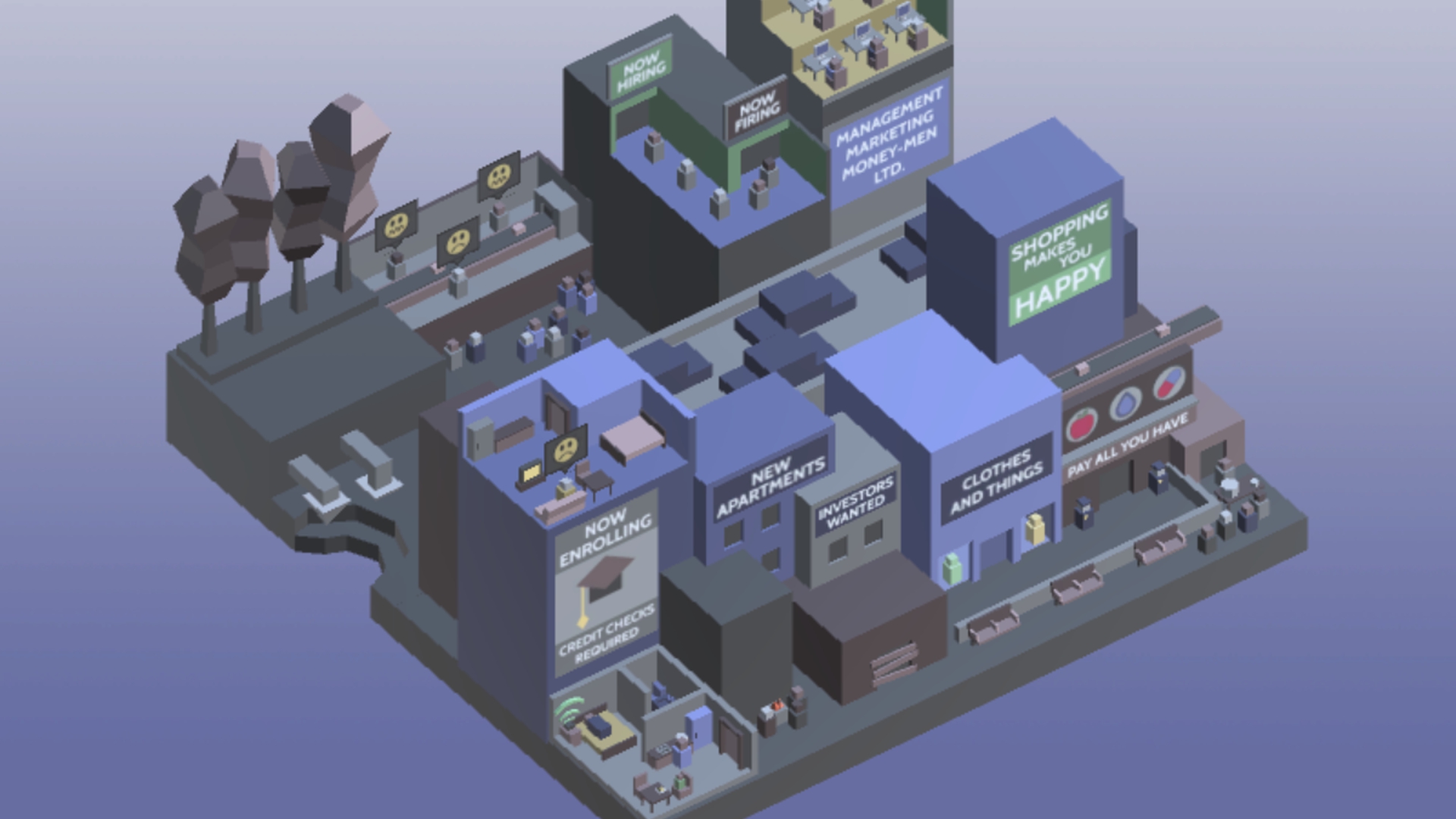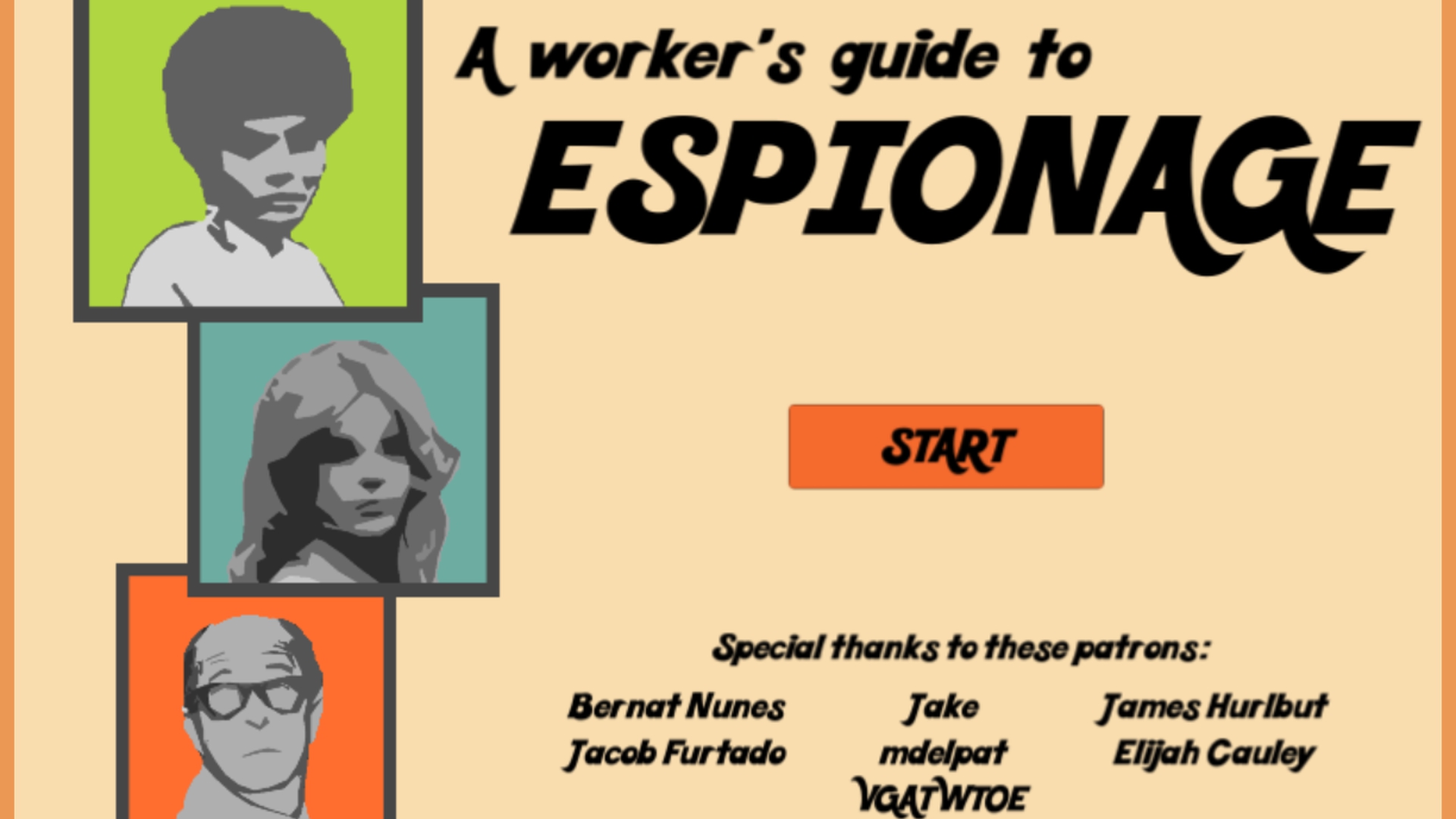The #WorkersGameJam: Issue 8 Editorial
by
Matt Hurry (@seeknoise),
Jamie Woodcock (@jamie_woodcock),
Dan C. Parkes (@dancparkes)
June 25, 2019
Featured in Workers Game Jam (#9)
Introducing the “jam”

inquiry
The #WorkersGameJam: Issue 8 Editorial
Introducing the “jam”
In this special issue, we present the results of the #WorkersGameJam - a joint collaboration between Notes from Below and Game Workers Unite (UK). The “Jam” grew out of discussions between the three of us - Dan, Matt, and Jamie - as well as others from GWU. These discussions were primarily about raising awareness about the movement; keeping the momentum going from the formation of the union formed last year.
We understood that it wasn’t going to be an easy endeavour. None of us had organised a game jam before, let alone one with a unique twist, about a subject matter which the vast majority of the audience attracted to game jams have little knowledge about. However, we thought it was a good exercise for the union as we want to run these style of events in future - and the games that have been made are great expressions of what “organising at work” looks like.
A game jam taps into the work that many GWU members do each day. The things game workers make have the potential to tell powerful stories, drawing the player in through the interactivity of the medium. However, since the early days of videogames, the people who make them have often been caught between alternative forms and co-optation by companies. For example, early videogames were made by people hacking military computers while they should have been planning missile trajectories.
Despite this history of radical game making, it is not often that the stories of union organisers or left wing politics find mainstream appeal. There are increasing examples of videogames (or at least game-like elements with gamification) being used at work to drive motivation and increase exploitation. For example, Amazon has tried to ‘turn warehouse tasks into video games to make work “fun”’, using technology to increase the pace of work and introduce competition among workers. However, at the same time, the game format has been used in The Amazon Race to draw attention to the working conditions hidden behind the warehouse doors.
Given these competing uses for videogames, we see this “jam” as an argument about what games could do. So (unsurprisingly!) we choose the theme of “organising at work.” We wanted to encourage entries that took a creative angle or approach to what organising at work might mean today.
There is a tradition of game jams that ties in with practices of overwork - seen, for example, with the idea of working on a game over a whole weekend, eating pizza, and sleeping between energy drinks on the floor. Given the organising that GWU members have been undertaking, we did not want the “jam” to encourage exploitative working practices. We sought advice from Mike Cook - who runs the fantastic ProcJam. For example, we recognised how much work goes into making a game, putting forward a long suggested timetable to try and reduce the pressure. There are no winners announced and we also encouraged participants to collaborate. That’s also why we’ve gone with “jam” in speech marks.
As one supporter warned, the potential Venn diagram between people who have experience of organising at work and people with experiences of making games is potentially quite small. In this first attempt at a workers game “jam”, we invited submissions that could be prototypes, working versions, ideas for a game, drafts and sketches, or other forms. What we were interested in is thinking about how short games can help inform or motivate organising at work.
The “jam” itself ran from the 18th of May to the 17th of June 2019. It was an online process, although we did hosted a physical meet up halfway through. We’re already discussing hosting another “jam” later in the year - so updates to follow.
As a start to broadening out that Venn diagram space, the issue presents eight games, as well as accompanying pieces:
-
Dan C. Parkes’ Momentum is a Katamari inspired physics game that takes union recruitment and rolls with it.
-
Colestia’s A Workers’ Guide to Espionage is an entry to the game jam, based on “the Basics of Organising” from the IWW.
-
Lunch Break, by Good Praxis, is a Sega Mega Drive game about organising workers to fight for better working conditions.
-
Stachka, by authornoai, is a newly translated “game about a union strike in a country with defeated socialism.”
-
Lydia Hughes’ Comrades Collected! is a platformer game - made by a union organiser.
-
Jamie Woodcock’s A Workers’ Inquiry Game is (as the name suggests!) a point and click game about workers’ inquiry
-
Perebite’s Getting over work is a game about a pile of unpaid overtime separating the boss from his workers
-
In the first interview, Jamie talked with Colestia - who made A Worker’s Guide to Espionage - about making far-left political games.
-
In the second interview, Jamie talked with Ted from Pixel Pushers Union 512 about worker coops and political games.
-
Marijam Didžgalvytė’s Critique of Political Videogames, discusses how the GWU game “jam” was different to other kinds of political games.
-
The final piece is an excerpt from Jamie Woodcock’s new book Marx at the Arcade on political games.
Featured in Workers Game Jam (#9)
Subscribe to Notes from Below
Subscribe now to Notes from Below, and get our print issues sent to your front door three times a year. For every subscriber, we’re also able to print a load of free copies to hand out in workplaces, neighbourhoods, prisons and picket lines. Can you subscribe now and support us in spreading Marxist ideas in the workplace?
Read next

Interview with Colestia
by
Jamie Woodcock,
Colestia
/
June 25, 2019

